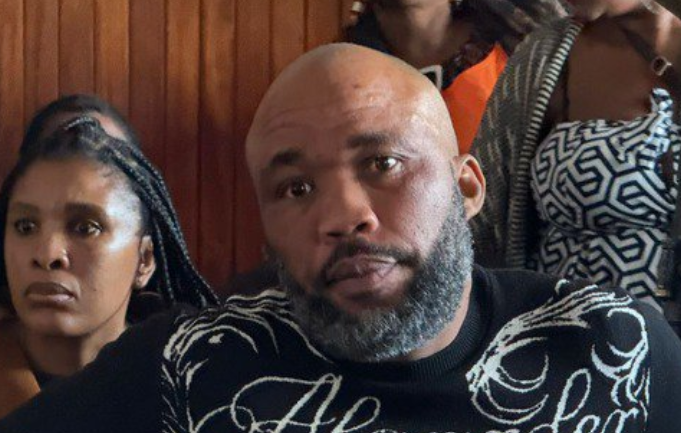With just days to the 2019 ballot, Khaya Sithole urges us to remember
Twenty-five years later – the memories of what we used to be and who we wish to be shall converge in the ballot box…
By Khaya S Sithole
“Fiction writers must master the art of creating a vivid picture, but the challenge for memoirists is to determine how and what to remember.” (Diana Raab, PhD)
In just eight days’ time, South Africans will take to the polls for the sixth time since that fateful morning of 27 April 1994. That day, South Africans were buoyed by a sense of optimism that appeared surreal and eternal; a sense of hope that after decades of socioeconomic disenfranchisement underpinned by the apartheid regime, the future would be far less exclusive and much more equitable. In 1994, there was an explicit desire to banish the past into the annals of memory. A desire to create a new future premised on shared prosperity and social solidarity. A future whose fundamental ethos of reconciliation called on so many who had sacrificed so much to commit one last sacrifice and commit to the spirit of forgiveness.

Much less explicit and far less tangible was the question of what the ensuing years would look like and more accurately – should look like. In 1994, burdened with the responsibility of unburdening the nation from a state of social, political and economic paralysis and charting a map forward; the government had a lot of social and political goodwill in hand. The type of goodwill that enabled all of us to say – ‘We may not know exactly where we will end up, but it definitely will be better than where we come from’. This shaped the initial pathway of the democratic state – the abolition of discriminatory laws and practices; the creation of democracy-supporting institutions with a commitment to the common cause; and the adoption of the country’s ultimate social charter – the Constitution.
25 years later, the country finds itself at a crossroads. On the one hand, we have the generation that lived through the hard times. The generation that fought in the trenches for the right to vote on 25 April 1994. A generation whose sense of duty and responsibility was fashioned not through choice but by circumstance and chance. A generation whose recollection of the past was as vivid in 1994 as it ought to be today. The recollection ought to be as vivid today simply because the type of prejudices and problems of the past remain deeply embedded in the soul long after their structures are dismantled. And yet – as fate would have it – the persistence of memory is not as pure as we might desire. In the interregnum – so much of the 1994 promise has found itself contesting ideals with reality.
Also Read: Are calls for an economic CODESA justified?
The reality of a stagnant state and a polarised society that stands in contrast with the optimism of the 1994 spring of hope. A state of paralysed institutions and compromised custodians who continuously undermine the social solidarity that we all signed for. Such a state of affairs, has led to a sense of tangible discontent within this generation. The type of discontent that leads them to question the substance of sensibility of the concessions of 1994.
On the other hand, we have a much younger generation of voters and citizens born soon before and after 1994. The type of generation whose memory of apartheid is partly anecdotal and part-reality. The reality emanates not from living through the height of it all but rather struggling and suffocating through its enduring legacy. A generation whose presence in this world presents an intersectionality of luck, opportunity and disappointment. Some were lucky to find ways of accessing the elusive upside of democracy – access to education, shelter, health and vibrant economic prospects. Some were lucky to be born into the world of opportunity that at once offered access and facilitated success in multiple fields.
Others – tragically making up a significant part of this generation – had a much harder recollection of the past 25 years. A time that has seen them seeking to survive rather than thrive. A time that has seen them existing on the fringes and forever chasing the elusive mirage of the grand democratic illusion. It is perhaps in this group where the fragility of memory is most amplified. They have surely heard the stories of how bad it used to be; how fractured the social compact used to be; and how brutal the system of legitimised discrimination used to be. They may indeed recall the stories passed on from the previous generations and know that what we have now is much better than what we used to have. And yet – in their daily confrontations with the reality of unemployment, poverty, exclusion and marginalisation – the fluidity of memory takes centre stage where it is not always easy to know what to remember and what to forget. Do we remember the brutality of apartheid with the same vigour that we forget the gap between expectations and outcomes since 1994? Do we remember the conquest of the past with the same sense of euphoria that we forget the scourge of the ‘nine wasted years’? And if we are to find parts of our history worth remembering and those worth forgetting – how do such interactions with past and recent history inform our decisions going forward?
READ: David O’Sullivan Shares Memories Of the 1994 Election
The 2019 election cycle unites the two generations in one particular aspect – the acknowledgment of the lost momentum, the broken social compact and the declining fortunes of the nation. Both generations have lingering questions about the past and persistent anxieties about the future. The political campaign season would be best served by tapping into these questions and anxieties and offering prospects of something substantially more cogent and unifying than what we have seen before. As memories fade either through fragility or diminishing persistence – the essential social compass gravitates further towards what are to become rather than what has come before and denied us the chance to be. Over the last leg of this campaign season, we can only hope that those seeking to lead us into the next 25 years will find a way of leveraging the collective memory of a society lacking in collectivism, to find a way to bring us all together again – whether we are the old or the emerging generation.
Failure to do this means that one day our fabled history of the 1994 promise will fade into the annals of fiction.
Written by: Zuko
2019 ballot 25 April 1994. 25 years Are calls for an economic CODESA justified? before and after 1994. Constitution. optimism of the 1994 The 2019 election cycle
Similar posts
MORE ARTICLES

WATCH: American Artist, Lisa Shaw in SA for the Italian Elegant Xperience and working on a new album

The Kaya Countdown powered by Ackermans

Akon City project reportedly scrapped by Senegalese authorities

State to add more charges in Vusimuzi ‘Cat’ Matlala’s case

Temu launches first warehouse in South Africa
QUICK LINKS
UpComing Shows


The Hive
With Bonolo "Bee Sting" Molosiwa
Every "Hive" needs a Queen B and Bonolo "Bee Sting" Molosiwa is Kaya 959's honey who brings in the money. With her bubbly personality, infectious laugh, Bee Sting radiates positive energy which is all you need to get your weekend off to the best start. Don't miss the Afrobeat Dancehall Ragga (ADR) Top 10 on The Hive with Bee Sting every Saturday from 18h00 - 21h00.
close
The Hive
With Bonolo "Bee Sting" Molosiwa
Every "Hive" needs a Queen B and Bonolo "Bee Sting" Molosiwa is Kaya 959's honey who brings in the money. With her bubbly personality, infectious laugh, Bee Sting radiates positive energy which is all you need to get your weekend off to the best start. Don't miss the Afrobeat Dancehall Ragga (ADR) Top 10 on The Hive with Bee Sting every Saturday from 18h00 - 21h00.
close
Tune and Chill
with Tyroline Franks
Tune and Chill with Tyroline Franks on Kaya 959. Weekends, Saturday and Sunday, 15pm-18pm.
close
On the Beat
On the Beat with George Manyosi on Kaya 959. Saturday's, 18pm-21pm.
closeConnect with Kaya 959
DownLoad Our Mobile App
© 2025 Kaya 959 | On The Street On The Air









